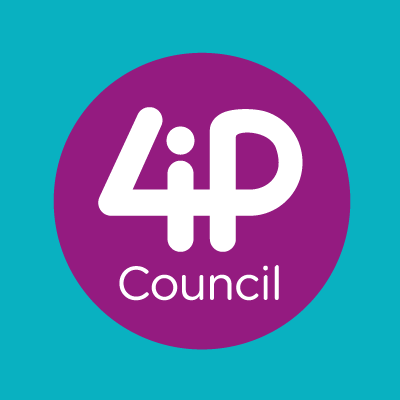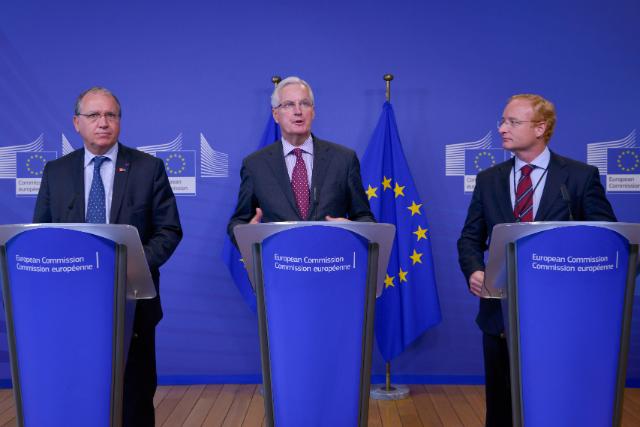

ANOTHER week has ended and it ended no better than most. The European Patent Office (EPO) continues to show signs that it's unwilling if not unable to change. It's just succession of Plan Battistelli, courtesy of his fellow Frenchman and old friend António Campinos.
"It gives us neither comfort nor solace to see the EPO retweeting ’4iP Council’ on Friday (yesterday). They’re part of the propaganda mill of Team UPC, of patent trolls and of litigators..."We would really, really love to see genuine change/difference; so far what we've seen is more advocacy for software patents in Europe than under Battistelli. We've also seen more staff reductions. Will the EPO be running out of staff? Can their examination division be replaced with/by over-glorified "AI"? The EPO is not advertising openings and sources say there's a hiring freeze for years to come (with about a quarter of the staff expected to retire by then). Whatever or whoever they're hiring, they’re not hiring experienced examiners, they look for cheaper ones (or none, maybe some algorithms). The only thing we saw is this a few days ago. Has the Office realised that it's rapidly running out of talent?
It gives us neither comfort nor solace to see the EPO retweeting '4iP Council' on Friday (yesterday). They're part of the propaganda mill of Team UPC, of patent trolls and of litigators; They work with trolls and collaborate with Team UPC on lobbying for software patents in Europe. This is what the EPO has retweeeted: "Our latest report is a collaboration with @EPOorg on computer implemented & #AI #inventions: how many, how to apply, examination criteria … & more. Download here: https://bit.ly/2E0JOK9 #4IR, #patents pic.twitter.com/3PtKxmoOkk"
So they're working together on promoting "computer implemented & #AI #inventions" (i.e. patents on algorithms). The EPO not only reweeted this; it participated in this (it says "collaboration"). The UPC, a Trojan horse for software patents in Europe, will never become a reality, so perhaps they just try to legitimise such ludicrous patents (that European courts strike down). That's not to say that there's a 0% chance of UPC (in some form) materialising some time in the future. Team UPC has not given up entirely. Now it's the turn of McCarter & English LLP's Susan Okin Goldsmith and Bharadwaj, Kritika. Under "IP Considerations to Deal with No Deal" they bring up the usual talking points, boosting the same old lies about UPC (e.g. that it's still possible in spite of Brexit). Dream on...

Also on Tuesday, German website WinFuture.de scooped everyone by finding out from resellers that Apple will apparently have a workaround ready in a month's time. It's illustrative of the utter absurdity of the envelope tracker SNAFU that a workaround would have to be created, replacing a non-infringing (in all likelihood, given the two U.S. decisions) chip. Contrary to what some people on the Internet appear to think, it's not an admission. It's simply that, should WinFuture.de be right (which I tend to believe it is), any infringement allegations by Qualcomm against the modified variants of the iPhone 7 and iPhone 8 would require a whole new determination on the merits, while a contempt proceeding involving the previously adjudicated chipset could be decided against Apple if the court relied on its agnostic--by now, most likely counterfactual--infringement finding again. If the standard in a contempt proceeding required Qualcomm to prove an actual infringement, a workaround would most likely not be needed, but the court might favor the same approach once again and adopt Qualcomm's attorneys' fiction. As the saying goes, discretion is the better part of valor.
Yesterday--Wednesday--delivered the next round of bad news for that Qualcomm patent. Technically it's U.S.-only news, but due to major overlaps it also has important implications for an opposition proceeding before the European Patent Office, which will hold an opposition hearing on May 24 (chairman: Manuel Pavón Mayo; 1st examiner: Ali Hijazi; 2nd examiner: Thomas Agerbaek). The U.S. inter partes review no. IPR2018-01154 targeting claims 15-20 of the U.S. envelope tracker patent is most interesting in this regard as the claims and the prior art references are most similar to the issues before the EPO's opposition division.
[...]
Before the EPO, Intel attacks the relevant European claims as being anticipated by a prior art reference named Hou, but also argues that they're obvious over Kwak + Kim, or alternatively over Stauth + Tanabe. Further reference is made in Intel's European opposition brief to prior art references named Midya, Lee, Wu, Mathe, Kim, Kang, and Chu.
Finally, here's Intel's European opposition brief (Appled raised the same issues and is represented by the same Samson & Partner patent attorneys):
epo.org link) that the President of the EPO met patent maximalists from another continent: Iancu, LESI and AIPLA. At least we know whose interests EPO President Campinos serves...
The European Patent Office (EPO) and the Licensing Executives Society International (LESI) have signed a Memorandum of Understanding on bilateral co-operation to help innovators make better use of the European patent system. The agreement was signed by EPO President António Campinos and LESI President François Painchaud on the occasion of LESI's recent Winter Planning Meeting in Miami, Florida.
This enhanced co-operation will enable the EPO and LESI to extend the reach of joint activities for stakeholders in the innovation ecosystem, especially small and medium-sized enterprises, industry representatives, technology transfer experts, publicly funded research organisations, IP advisors, innovation centres, user associations, IP offices and government policy makers.
The Memorandum of Understanding between both partners will remain in effect for a period of five years and extends the successful history of co-operation between the EPO and LESI.
[...]
During his mission to the United States President Campinos also met with Andrei Iancu, Under Secretary of Commerce for Intellectual Property and Director of the United States Patent and Trademark Office (USPTO), and they agreed that their offices would investigate possible new measures for further enhancing bilateral co-operation.
[...]
During the visit, President Campinos also engaged with many key US partners and stakeholders, including the Association of Corporate Patent Counsel (ACPC) and the American Intellectual Property Law Association (AIPLA). In these meetings the EPO President provided insights into the Office's strategic plan and vision for the coming years, and invited patent system users to contribute to the EPO's corresponding public consultation.